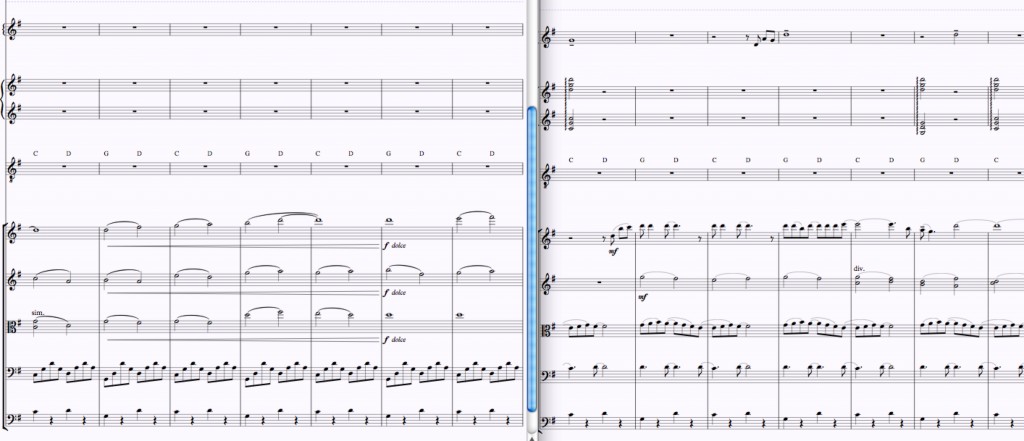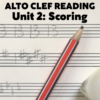Tuesday, 7 January, Part 1
I’ve been slack about my journal for the past two days, and finally catching up today. Well, I did finish the Ronan Keating song “When You Say Nothing At All” in one day on Sunday the 5th, but strangely it was a lot more of an effort than the awesome rush of Tubular Bells on the first day. Perhaps not strangely when one compares the style and context of the two songs. Tubular Bells was an overture, with no vocalist to worry about, in a style that’s influenced by orchestral texture and complexity. The country roots of Keating’s song are more rigid, leaving far less space in the sound picture for an orchestrator who doesn’t want to mess with the feel of the song. But it was still fun to do, even though it was a pull at times.
Life in a holiday camp take foresight and planning for the workaholic orchestrator. When I wake up way before anyone else in my one-room cabin, needing as usual to get right to work with the first breath of morning, then it’s a precarious business. I have to sneakily get dressed, collect my things, tiptoe out to the loo, and then to the lounge, all while carrying around a laptop, small keyboard, power supply, and headphones. Luckily there is a lounge, and no one else likes to get up at 4 or 5 in the morning. I can work anywhere, because most of the work is upstairs.
But I do miss my vertical scoring screen. A 15-inch Mac Powerbook doesn’t quite give one the sweep of the full score, and I’ve made one or two stupid errors (nothing serious) in scoring phrases on the wrong bar or staff because I couldn’t see the whole picture. It’s the proportion of work to the parameters of the screen that’s the reason. I’m scoring an average of 100 bars per day, half to full orchestra for most of it, and avoiding too much cut-and-paste to keep the songs fresh the way through.
After the Ronan Keating odyssey, my eyes didn’t want to work right. I had to relax my vision and wear reading glasses, and I still had problems focusing. I think my vision may have changed since my last prescription. It really brings home that the enormous speed at which a score may now be produced still is reliant on the quality of the orchestrator’s vision. Then consider that one of the most prolific composers ever had the worst eyesight: Franz Schubert. I respect that ultra-geek of composing quite a bit, especially when I can’t see exactly what I’m doing from time to time either.
At the end of the day, I got an e-mail from the MD, assigning me two more songs: another Melanie C song, “If That Were Me;” and “Take a Minute” by Sharon Corr. Nice songs from an orchestrator’s perspective, as they both already are scored for strings plus.

The next morning, I was up by 6 a.m. with one of those “what an idiot I’m being” moments that are so necessary at times for saving a score. After sleeping on it, I realized that the ending of the Keating song was too elaborate. It reached too high, and distracted from the meaning of the windup. So I tossed it, and created a new ending that scored a harmonized version of Keating’s vocal vamp from live recordings, counterpoint to the implied rhythm of the back vocals. That ends with power instead of poetry, which is what’s needed there.
Next: Part 2 – New songs and more new songs.








